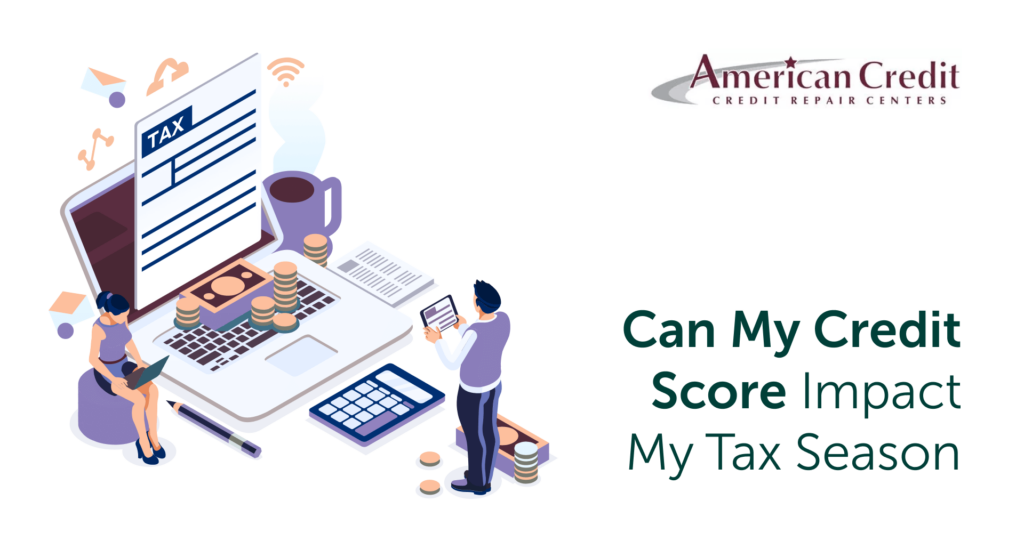Your credit score generally doesn’t impact how you’ll fare during tax season. Poor credit won’t lower your tax refund or disqualify you for one. Your credit standing has more of an influence on whether lenders approve your credit or loan application, an employer offers you a job, or landlord lets you rent an apartment. Nevertheless, if you’re trying to raise your credit score, there are ways in which your taxes can have an impact, which we’ll explain in detail.

If You Pay Taxes Using a Credit Card
Having a low credit score, or high utilization, can create challenges during tax season if you decide to pay a tax bill with credit. The IRS has authorized various private companies to process tax payments via credit cards. Paying this way won’t impact your credit score directly, but keep in mind a nearly 2% fee will be added to what you charge. You’ll also incur interest on the payment unless you pay it off in full next month.
High interest rates, plus accruing balances, can expand your credit card debt. Plus, adding a tax payment to a credit card balance raises your credit utilization ratio; if it’s higher than 30%, your credit score can drop. Your borrowing limits and the size of your tax bill are factors as well, not to mention how quickly you can pay down your balance.
Paying Taxes with a Personal Loan
If you have a good credit score, you may qualify for a personal loan to pay your taxes. This is sometimes a more affordable option. Interest rates tend to be less than those for credit cards. And loans usually come with a set number of fixed payments, making it easier to work with your budget.
A personal loan also appears on your credit report. This has two impacts; applying for the loan triggers a hard inquiry, which lowers your credit score slightly, and your payment activity appears on your record. Credit score impacts from hard inquiries typically rebound in a few months. Over the long-term, keeping up with payments and diversifying your credit mix can increase your credit score.
Does an IRS Installment Plan Affect My Credit?
If you can’t pay in full or borrow this tax season, the IRS offers payment programs called installments. These do not affect your credit. Interest rates are generally around 3%. Short-term plans are cheaper to set up, but you’ll be charged a late penalty every month your tax obligation isn’t paid in full. Setup fees for longer term plans can be quite high. Some plans have a set pay period, while others are more flexible depending on what you owe and can afford each month.
Does My Tax Standing Affect My Credit?
It can, especially if you don’t pay your tax bill and owe $10,000 or more. If so, then the IRS may issue a tax lien against you. The agency stopped adding tax liens to consumer credit reports as of 2018, although potential lenders can search public records to find them. Tax liens are withdrawn when a taxpayer enters into a Direct Debit Installment Agreement. Filing for bankruptcy may be an option if you’re unable to pay your taxes, although this has a substantial impact on your credit score.
Credit Repair Can Expand Your Options to Pay This Tax Season
Removing errors and negative information on your credit report can be challenging with the dispute letter process. At American Credit, we use a pre-litigation process to work with your creditors. If they don’t oblige by the law, we threaten legal action on your behalf. This approach can lead to favorable decisions that may increase your credit score by 100 points or more. A higher score can expand the options for paying your tax obligations. Schedule your free credit consultation by calling 855-661-3449 today!

Recent Comments